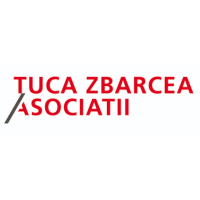

Country Legal Manager | DP World Romania




Roberta Stefania Groze
Country Legal Manager | DP World Romania
What are the most significant cases, projects or transactions that you and/or your legal team have recently been involved in?
In the past year, our legal team has been deeply involved in supporting DP World’s strategic expansion in Romania and the wider Balkans, reinforcing Constanța’s role as a logistics hub for the Black Sea and Central Europe.
Among the highlights, we provided legal structuring and contract support for the €130mn investment programme, which includes a new RO-RO terminal (with a capacity of 80,000 vehicles per year), a 5-hectare project cargo terminal, and the development of a multimodal logistics platform scheduled to open in 2025. These projects are critical for connecting maritime, rail, and road networks across the region.
In parallel, we supported the launch of the intermodal hub in Aiud, an €21mn investment that strengthens inland connectivity for Romania and its neighbours. Together, these initiatives aim to double container capacity and handle an additional 2 million tonnes of cargo annually, positioning DP World Romania as a gateway for Balkan and European trade flows.
From a legal perspective, our role has been to ensure that these strategic developments are backed by robust contractual frameworks, regulatory compliance, and risk management mechanisms, allowing the business to grow sustainably in an increasingly complex geopolitical environment.
How do you approach managing legal aspects during periods of instability or crisis to ensure the organisation’s resilience?
Instability is often amplified in the logistics and port sectors, where geopolitical tensions, trade fluctuations, and supply chain disruptions can directly impact operations. My approach is centred on anticipation, adaptability, and clear communication.
Given the current geopolitical shifts and growing uncertainties around international free trade, has your company’s risk profile evolved, and are you taking measures to address these challenges?
Absolutely. The logistics industry is directly exposed to geopolitical developments, particularly in Eastern Europe. Our risk profile has shifted from focusing primarily on operational and contractual risks to also integrating geopolitical risk mapping into our decision-making.
We have introduced contractual flexibility clauses, diversified suppliers and partners, and increased the monitoring of sanctions regimes. As legal manager, I have been directly involved in ensuring compliance with evolving EU sanctions and trade restrictions, while also advising on proactive contractual frameworks to cushion against sudden regulatory changes.
How can general counsel foster a corporate culture that supports ESG principles and compliance across all levels of the organisation?
General counsel plays a pivotal role in embedding ESG into the company’s DNA. At DP World Romania, this means going beyond compliance by translating ESG principles into practical policies, training, and contract standards that guide day-to-day operations.
We integrate ESG into procurement processes, ensuring suppliers meet environmental and social standards, and we provide regular workshops that link compliance with our broader responsibility as a global trade enabler. By aligning ESG initiatives with business goals – such as the development of multimodal hubs that reduce carbon footprint through greener transport chains – we create a culture where compliance is not perceived as a limitation, but as a driver of sustainable growth.
Ultimately, the role of the general counsel is to ensure that every level of the organisation, from operations to management, understands that ESG and compliance are integral to competitiveness and long-term resilience in the Balkans and beyond.